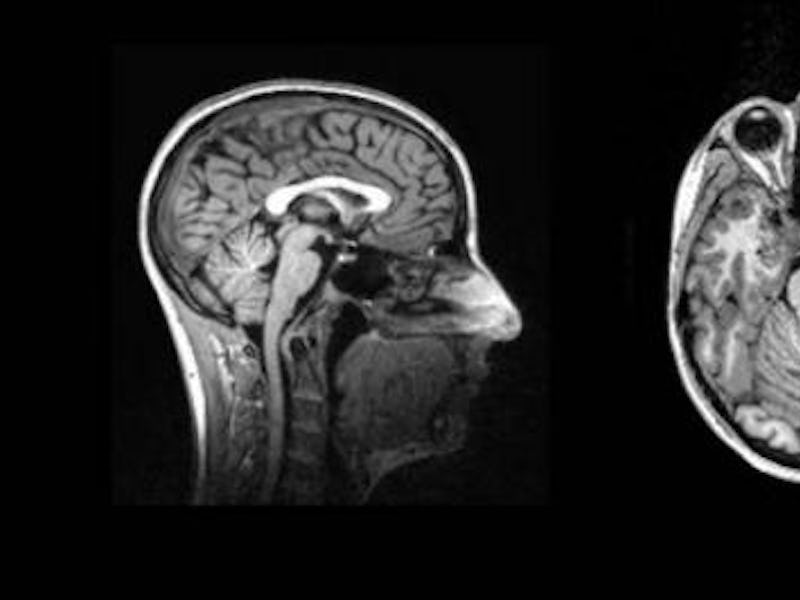Brain scans reveal a critical link between binge drinking and empathy
Data shows binge-drinkers need to work harder to feel empathy for other people in pain.

The experience of empathy is both intuitive and abstract. Empathy has different definitions, but it’s often described as the ability to understand another person’s situation, emotion, or viewpoint, without actually experiencing it yourself. Scientists don't fully understand precisely why we empathize, but the benefits are clear. Empathy is what allows people to build emotional bridges, enabling compassion and aid.
And while empathy may seem like an unstoppable reflex — you see someone in pain, so you feel for them and their pain — it is not necessarily so. Research suggests some people will, at times, avoid feeling empathy because it requires too much mental effort; it can feel cognitively costly to carry someone else’s emotional load. And feeling empathy is especially difficult, research published Thursday in the journal NeuroImage: Clinical claims, if you’re a heavy drinker.
Scientists from the University of Sussex demonstrate that the brains of binge drinkers put more effort into feeling empathy for other people as compared to the brains of people who do not binge drink. In this study, binge drinking was defined as drinking more than 60 grams of pure alcohol during a single sitting at least once in the past 30 days. That’s about three-quarters of one bottle of wine, or 2.5 pints of lager.
The finding feels especially salient considering the state of the world, when empathy is arguably critical for survival. We’re also drinking more during Covid-19 — a lot more.
Early in the pandemic, alcohol sales were categorized as essential business, and in March, alcohol sales jumped compared to 2019. Researchers watching our drinking habits say it’s too soon to know the long-term effects of pandemic drinking, but a recent survey of 320 adult Canadian drinkers suggest people use alcohol to cope with Covid-19. Upped alcohol consumption, increased solitary drinking, and strong motives for drinking were each independently associated with experiencing “alcohol problems” over a 30-day span.
Theodora Duka is a professor at the University of Sussex and lead author of the study on binge drinking and empathy. She explained to me that her team’s data shows binge-drinkers need to work harder to feel empathy for other people in pain, as evidenced by increased brain activity compared to non-binge drinkers.
“What this means in everyday life is that people who binge drink might struggle to perceive the pain of others as easily as non-binge drinkers do,” Duka explains. “It’s not that binge drinkers feel less empathy — it’s just that they have to put more brain resources into being able to do so.
“However, under certain circumstances, when resources become limited, binge drinkers may struggle to engage in empathetic response to others.”
"... people who binge drink might struggle to perceive the pain of others as easily as non-binge drinkers do."
In the study, 71 participants, some from France and others from the United Kingdom, had their brain activity observed in fMRI scanners while they undertook a “pain perception task.” Everyone was sober during observation, but half of the participants were classified as binge drinkers.
In the task, participants were shown a picture of a limb being injured. They were then asked to imagine that the limb either belonged to them or another person. Subsequently, they were told to state how much pain was associated with the image. The goal of the study, Duka says, was to “extend recent evidence that binge drinkers show reduced empathy using an objective method of pain perception in one’s self or in a stranger,” and measure that response with brain imaging.
The blue represents the parts of the brain that are engaged during the perception of faces, while green represents the parts engaged in the perception of bodies.
“By identifying how the brain responds to pain stimuli that normally engage empathy, we can understand better some of the mechanisms that lead to binge-drinking behavior,” she says.
The experiment revealed the binge-drinking participants struggled more to adopt another person’s perspective. That struggle was evidenced in their brain. In the “pain-other condition,” a visual area of the brain involved in recognizing body parts showed higher levels of activation in the brains of binge drinkers only. This region is called the Fusiform Body Area (FBA).
Duka describes the FBA finding as “intriguing,” and she hopes people consider her research through the “assumption that empathy is important for optimal social interaction.” It helps us understand and respond to the needs of others — and it appears important to prevent young adults from heavy drinking. Previous studies have found that decreased empathy is associated with increased alcohol consumption in people between the ages of 13 and 20.
How can we apply this finding to our current situation of pandemic-motivated drinking? Duka has this advice:
“All I can say is to try not to drink heavily, be empathetic, and try always to understand and respond to the needs of others.”
This article was originally published on